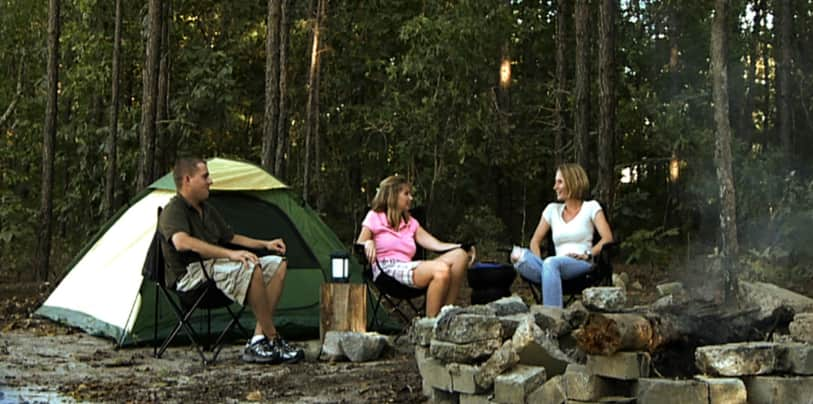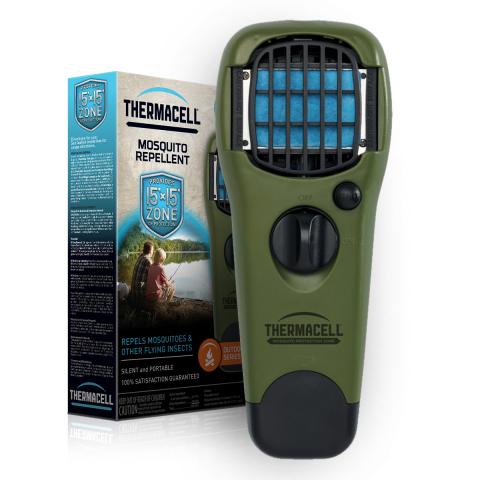Summer Camping: Winning the Mosquito Wars
OutdoorHub Staff 07.07.16

Few things can take the fun out of your camping trip quicker than a whining, biting swarm of mosquitoes descending upon the campsite—and your unfortunate flesh.
No preventive measure can guarantee a bite-free experience, but there are things you can do to keep the itch-factor at a minimum.
Choose your campsite wisely: Mosquitoes love to rest in the grass and on the undersides of leaves on trees and bushes. So, that well-shaded campsite that looks so inviting is probably a haven for the little bloodsuckers. Instead, set up your tent in an open area that gets some wind, and is some distance away from any standing water—the mosquito’s breeding ground.
First line of defense: The clothing you wear is your first line of defense against mosquitoes. The insects are drawn to body heat and the carbon dioxide you exhale. Covering up with long pants and shirtsleeves, and a hat or kerchief, in light colors that reflect heat makes it harder for the bugs to zero in. Clothing made of polyester or woven nylon are thicker and therefore a better than cotton or other fabrics.
Chemical repellents: We’ve all doused ourselves with “bug dope,” and it continues to be a good tool for fending off all types of biting insects. Depending on the level of DEET it contains, it’s typically effective for a couple, up to several hours. Permethrin is another option. It’s an insecticide that can only be used on clothing and gear—never on skin—and has long-lasting effectiveness. Permethrin-infused clothing, such as that offered by Insect Shield, promises effectiveness for the life of the garment.
You can also apply permethrin spray to your own clothing and gear to repel and kill mosquitos, ticks, chiggers and other pests. Sawyer’s Permethrin Premium Clothing Insect Repellent stays effective for “6 weeks or 6 washings.” You can head off a mosquito blitz by applying the spray before you even leave home.
Area repellers are becoming more and more popular, too. ThermaCell repellers, for example, use a tiny butane flame to heat a repellent wafer, which creates an invisible, odorless cloud of protection that covers a sizeable area. Some models even incorporate a battery-powered lantern that sheds light onto your surroundings.

Several studies have shown that mosquitoes show a preference to certain people, and that variable factors might include the amount of carbon dioxide we exhale, blood type, the level of alcohol we consume and others. But in the end, mosquitoes “bug” us all to some extent. Follow the tips mentioned here and you might just save your next camping trip.

